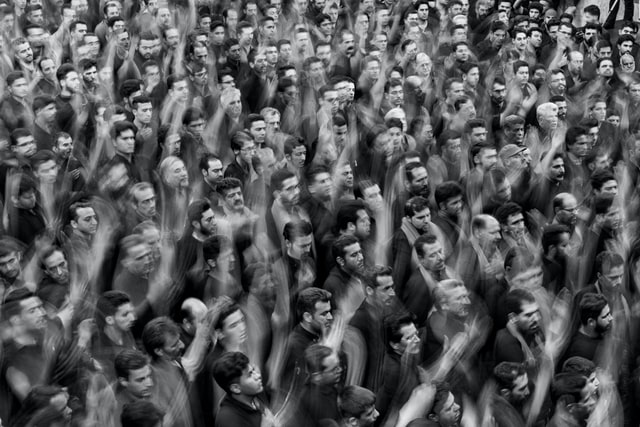Trade Unions (Declining in Contemporary Times)
Introduction
Trade unions are the most important constituent of the system of current industrial relations in any country. It is a fact that modifications in the field of politics and education as well as societal structures may rechristen the unions as a forum for the protection and furtherance of the interests of the workers. The unions play a pivotal role in improving the workers’ quality of life by helping them to make their customary roles of creating conditions of service bigger. A trade union can, thus, be simply described as “a continuous association of wage-earners for the purpose of maintaining or improving the conditions of their working lives” (as qtd. in Sinha, Sinha & Shekhar, 2006).
Decline of Trade Unions
Trade unions serve as a fundamental and influential feature in the modern-day system of making and supply of commodities and services. Trade unions have been tremendously supported by the modern industrialization (Sinha, Sinha & Shekhar, 2006). However, despite their influence, it is a saddening fact that recent economic conditions all over the world have resulted in the tremendous decline of unions making them less authoritative. There are several factors behind this decline. Firstly, union membership has reduced. Secondly, the objectives are not supported unanimously. Thirdly, there has been an ongoing battle for decades to win public approval but no fruitful results are obtained till date (Mosca & Pressman, 1995).
Switch from Corporatist to Competitive Financial Market
Nevertheless, one factor is major as far as union decline is concerned i.e. the switch from a corporatist to an extremely competitive financial system/market. It is not an untold secret that both the growth and the decline of unions are significant events for the people concerned. It is exceedingly important to mention here that decline in union power is welcomed in a number of societies where such institutions function in a self-centered manner by only promoting their workers’ interests and neglecting others. On the other hand, there are also a number of industrialized economies where decline in union power is discouraged as they are responsible for making significant contributions to the running of a liberated and egalitarian society (Sugeno, 1994).
Political, Economic and Global Involvement
As far as the union decline is concerned, it was during the 1980s and 1990s that the status of organized labor in the societies all over the world lost its significance due to that time’s changing circumstances. The increases in levies, involvement of unions in political campaigns etc, were some of the factors why there was a decline in the first place. However, with the passage of time, economy turned out as a major factor of this deterioration. The major factor is that the globalization has changed things greatly. The management everywhere is acquainted with the competition at both national and international levels that has heated up the situation for the unions. This is the major reason why they are not willing to acknowledge and comply with the demands made by the unions for higher reimbursements and benefits. Not only this, management has demonstrated a rather aggressive attitude and is fighting unions constantly to encumber the organization and assemblage of workers (Conte & Carr, 2001).
Automation
Automation is another challenge that is being faced by the unions. The members that are not familiar with the new technologies and machines find it difficult to handle them at the work place. This has reduced membership that ultimately declines trade unionism. A number of old industries have attempted to introduce automated machinery that can save labor and may carry out tasks that were once performed by manpower. Only a few unions have, however, tried to give protection to their workers by saving their jobs and incomes. Unfortunately, they have not achieved the anticipated success (Conte & Carr, 2001).
Inexperienced Workers
If seen from a traditional perspective, unions have always been weak in employing people in service industry and this still is a serious issue to consider. This shift to service employment is problematic because the recent times have made unions a place of attraction for the females, inexperienced youth, part-time jobseekers etc. who are not well-acquainted with the working conditions in unions. However, today, the shortage of experienced workers has been made up by employing the unskilled groups and a large proportion of the fresh jobs is composed of them (Conte & Carr, 2001).
Union Actions are Less Effective
In simple words, there have been drastic changes in the organization structure and roles and responsibilities of unions in the past several decades. While unions strongly contributed in the manufacturing industries during the 1970s; their greatest influence can now be felt in the private sector. The issue of concern is that the unions are now playing a very small role in the national affairs of a majority of countries all over the world. In the recent times, a number of analysts have concluded that union actions is less effective in raising the living standards of the people if compared with the present-day market conditions. This is the reason why economic conditions have made it difficult for the unions to thrive and develop (Pirie & Hattersley, 2010).
Constant Amendments in the Productivity
Constant amendments in the productivity have also contributed in dropping the demand for conventional labor. It is a known fact that the contemporary productions have snatched the opportunities from the giant firms that were involved in unionization. This is because they offered a concentration of labor that was more organized and union-free. It can be easily observed that there are now no shipyards or steel-works in large numbers. The changes offered by industrialized mechanization have, therefore, done so much for declining the union power and membership (Pirie & Hattersley, 2010).
Suggestions to Overcome The Decline
There was a time when a thousand men who worked in the same setting and for the same union were capable of processing enough power to compel their requirements over their managers. This was possible because of the unionization that gave them solidarity to take actions collectively (Pirie & Hattersley, 2010). This has changed in the modern times with the economic revolution. However, it is a fact that an economy is kept in good shape by labor that is organized. It is the necessity of the time to develop a strategy and plan appropriately for the organization of global unions. And this should be done with an honest intention, vigor and vision that the workers could be provided with authentic powers to thrive in the 21st century. In addition, global unions should be given the responsibility of playing a major part in campaigning globally for economic and social justice.
Taken as a whole, in the contemporary times, unions do not have a great effect on the society and people as compared to its effects in the 70’s and 80s. Nevertheless, it is not possible for anyone to analyze this scenario is everlasting or short-term. It is expected that in times of good economic conditions, unions would have smaller impacts as employers are frequently more lucrative and enjoy a far better position to show their resistance for the demands made by the unions. The unions have somehow impacted the world economy in a distinctive manner and their significance cannot be overemphasized.
To cut a long story short, unions do have a permanent impact. There are a number of industrialized countries all over the world whose economic systems have been impacted by practicing and implementing the principles of trade unionism. In order to make certain that unions do not face declines, several countries have paved way for favorable legislation by employing collective bargaining as the basic mode to settle disputes regarding wages etc. These achievements were proved as fruitful due to their extensive positive consequences. Even the businesses that did not practice unionism have also adopted the tactics introduced by unions to organize their labor resources.
Conclusion
To conclude, if unions want to regain their power, it is extremely important for them to expand their contributions “in the contemporary industrial relations of developed economies, contributing to the equality and stability of society as well as to economic development” (Sugeno, 1994). In addition, they must also make attempts to turn out as an integral social institution by assuming responsibilities to gain popularity among public sector. It is also been suggested that “unions may be able to continue to prosper as a niche movement in the government sector, which is the sole remaining noncompetitive sector, and in sectors where individual firms or industries take advantage of either uninformed or immobile workers to enforce below-competitive pay packages” (Wachter, 2007).
References
Conte, C., & Karr, A. (2001). Outline of the U.S. economy. Washington, D. C.: U.S. Dept. of State, Office of International Information Programs. Print.
Mosca, J. B., & Pressman, S. (1995). Unions in the 21st Century. Public Personnel Management, 24(2), 159+. Retrieved October 7, 2013, from http://www.questia.com/read/1G1-17191054/unions-in-the-21st-century
Pirie, M., & Hattersley, R. (2010, October 11). Is Time Up for the Unions? the President of the Free-Market Adam Smith Institute and the Former Deputy Leader of the Labour Party Discuss the Past, Present and Future of Trade Unionism.New Statesman (1996), 139 (5022), 32+. Retrieved October 7, 2013, from http://www.questia.com/read/1G1-240918339/is-time-up-for-the-unions-the-president-of-the-free-market
Sinha, P. R., Sinha, I. B., & Shekhar, S. P. (2006). Industrial Relations, Trade Unions, and Labour Legislation. New Delhi: Dorling Kindersley.
Sugeno, K. (1994). Unions as Social Institutions in Democratic Market Economies. International Labour Review,133(4), 511+. Retrieved October 7, 2013, from http://www.questia.com/read/1P3-4446661/unions-as-social-institutions-in-democratic-market
Wachter, M. (2007, Summer). The Rise and Decline of Unions: Unions Are a Corporatist Institution, and as Such They Cannot Prosper in a Competitive Economy. Regulation, 30 (2), 23+. Retrieved October 7, 2013, from http://www.questia.com/read/1G1-167862184/the-rise-and-decline-of-unions-unions-are-a-corporatist

